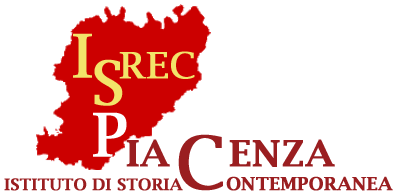E-story
- Convegno "La Storia nell'Era digitale", la nuova edizione
- ResistenzaMappe Piacenza
- E-review
- Percorsi con uso risorse digitali e multimediali
- Genocidio armeno
- Linguaggi della contemporaneità
- La storia e il presente
- Schede di analisi su risorse web e strumenti digitali
- Digital public history: proposte per le scuole
I relatori dell’edizione 2016
DANIELA ASQUINI
Laureata presso l’Università di Bologna in D.A.M.S. indirizzo cinema, lavora dal 2003 presso la Videoteca regionale. Ha curato in collaborazione con l’associazione documentaristi E-R numerosi progetti sulla promozione del linguaggio audiovisivo e delle opere documentaristiche nelle scuole. Ha organizzato in collaborazione con i centri di documentazione territoriali corsi per docenti sul linguaggio multimediale. Ha collaborato con l’Istituto Parri nella realizzazione dei seminari universitari Cinema e Storia e delle ricerche Media e cultura comunitaria e Storia e comunicazione in Europa. Il ruolo del web.
NADIA BAIESI
Istituto “Parri” per la storia e le memorie del 900 “Parri”, Emilia-Romagna – Italy
Nadia Baiesi has worked as a high school Philosophy & History teacher for 15 years. In 1994 she became the Director of LANDIS ( National Laboratory for History Teaching) at PARRI. From 2002 to 2009 she was also the Director of the Peace School Foundation of Monte Sole working about memory, history & peace education. Now she is the Director of the Educational Area of PARRI & coordinates the activity of history teachers training in Italy. She is the author of several essays.
ERIN BELL
University of Lincoln – Great Britain
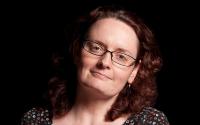 Erin Bell has experience in researching & disseminating to both scholarly & professional audiences the findings of her work, with Prof Ann Gray (now Emeritus) into the representation of the past in factual history television programming. In collaboration with Prof Gray she delivered the AHRC-funded project ‘Televising History 1995-2010’ research project from 2006-10, for which she collaborated with scholars & media professionals from overseas, particularly the Netherlands (Rotterdam) & Germany (HFF Konrad Wolff, Potsdam), in delivering high impact outputs disseminated through conferences & workshops: the largest of these to be organised through the AHRC project, the Televising History 2009 conference, was held at the University of Lincoln in July 2009 & allowed scholars from North America, Australasia, Africa & across Europe, & media professionals from the UK & mainland Europe, to discuss their shared interests leading to fruitful findings. Erin is active in advancing the field of media history, specifically the representation of the past in television documentaries in the period 1960 to the present, through her research & publications.
Erin Bell has experience in researching & disseminating to both scholarly & professional audiences the findings of her work, with Prof Ann Gray (now Emeritus) into the representation of the past in factual history television programming. In collaboration with Prof Gray she delivered the AHRC-funded project ‘Televising History 1995-2010’ research project from 2006-10, for which she collaborated with scholars & media professionals from overseas, particularly the Netherlands (Rotterdam) & Germany (HFF Konrad Wolff, Potsdam), in delivering high impact outputs disseminated through conferences & workshops: the largest of these to be organised through the AHRC project, the Televising History 2009 conference, was held at the University of Lincoln in July 2009 & allowed scholars from North America, Australasia, Africa & across Europe, & media professionals from the UK & mainland Europe, to discuss their shared interests leading to fruitful findings. Erin is active in advancing the field of media history, specifically the representation of the past in television documentaries in the period 1960 to the present, through her research & publications.
ANTONIO BRUSA
Docente in pensione presso l’Università di Bari, dove ancora insegna
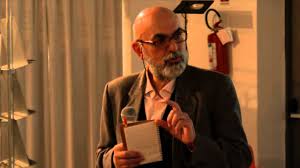 Didattica della storia, attualmente è docente a contratto presso il TFA dell’Università di Pavia. È membro del Comitato Scientifico dell’Insmli e dell’Istituto “Emilio Sereni”, presso il quale dirige la Summer School su “Storia e Didattica del Paesaggio storico Itlaiano”. Dirige la rivista “Mundus”, di didattica della storia, presso la casa editrice Palumbo, e fa parte del comitato scientifico di diverse riviste, fra le quali “Iber” (Spagna); “Les cahiers de Clio” (Svizzera); “Historiens et Géographes” (Italia), “Novecento” (Italia) e altre. È membro dell’Irahsse (società internazionale di didattica della storia) della quale è stato uno dei fondatori. Cura il sito Historia Ludens, di aggiornamento e didattica della storia. È autore di numerosi saggi, articoli e manuali.
Didattica della storia, attualmente è docente a contratto presso il TFA dell’Università di Pavia. È membro del Comitato Scientifico dell’Insmli e dell’Istituto “Emilio Sereni”, presso il quale dirige la Summer School su “Storia e Didattica del Paesaggio storico Itlaiano”. Dirige la rivista “Mundus”, di didattica della storia, presso la casa editrice Palumbo, e fa parte del comitato scientifico di diverse riviste, fra le quali “Iber” (Spagna); “Les cahiers de Clio” (Svizzera); “Historiens et Géographes” (Italia), “Novecento” (Italia) e altre. È membro dell’Irahsse (società internazionale di didattica della storia) della quale è stato uno dei fondatori. Cura il sito Historia Ludens, di aggiornamento e didattica della storia. È autore di numerosi saggi, articoli e manuali.
LUISA CICOGNETTI
Istituto “Parri” per la storia e le memorie del 900, Emilia-Romagna – Italy
Director of the Multimedia-Communication Area of PARRI & teaches Theory & Techniques of the Historical Documentary at Bologna University. She realized historical documentaries, short films, video installations & published essays on the relationship between history & media & the series “Research” PARRI published by Marsilio: e.g. Luisa Cigognetti, Lorenza Servetti, Pierre Sorlin: The History of Television. Historians & filmmakers in comparison, Marsilio 2004; Which story are we? Interviews & personal stories in film & television, Marsilio 2007; Many past for a common future? The story on television in countries EU Union, Marsilio 2011. She is currently in charge of the research project: History & the Web in EU promoted by Europe Direct, the Legislative Assembly of Emilia-Romagna & PARRI. One of the latest multimedia works made is: “Imagine the twentieth century”, video installation for the exhibition in Sala Borsa April 2014. She coordinates the Portal Resistenzamappe, a digital tool in which is possible to download applications, educational packages & resources about WW2, Resistance & Contemporary History.
URSZULA JARECKA
Instytut Filozofii j Sociologii Polskjei Akademii Nauk – Poland
 (PhD, associate professor, IFIS PAN, Warsaw) worked as a trainer during the project devoted to the students internships (“Dobra praktyka kluczem do sukcesu w edukacji”) lead by the Faculty of Education of the Warsaw University. She is also the author of books and articles on sociology of culture and history. In 2012 she contributed to the organization of international conference with prof. Józef Niżnik (IFIS PAN, Warsaw) and and prof. Peter Tame (Queen’s University Belfast): War and Memory: artistic and cultural representations of individual, collective and national memories in twentieth-century Europe at war.
(PhD, associate professor, IFIS PAN, Warsaw) worked as a trainer during the project devoted to the students internships (“Dobra praktyka kluczem do sukcesu w edukacji”) lead by the Faculty of Education of the Warsaw University. She is also the author of books and articles on sociology of culture and history. In 2012 she contributed to the organization of international conference with prof. Józef Niżnik (IFIS PAN, Warsaw) and and prof. Peter Tame (Queen’s University Belfast): War and Memory: artistic and cultural representations of individual, collective and national memories in twentieth-century Europe at war.
EVA KLEMENČIČ
Pedagoski Institut – Slovenia
Head of the department for Applied Epistemology Researches on different areas, e.g.: concepts of knowledge in western cultures, curricular reforms, global/local knowledge, international large scale student assessments, special didactics and methodic, civic and citizenship education, multicultural education. Holds PhD in linguistic of speech and theory of social communication (individualized programme focused on education) (PhD thesis: International large scale student assessments, curricular policies and global/local knowledge). Currently she is a Slovenian representative in the IEA General Assembly. She is also the national research coordinator of two large scale international studies – ICILS 2013 (computer and information literacy) and ICCS 2016 (civic and citizenship education). Eva Klemenčič also has experience in producing learning materials for citizenship education (textbooks, teacher guidelines).
CARLA MARCELLINI
Carla Marcellini è docente di lettere, comandata presso l’INSMLI. Fa parte del Cda e della Commissione Formazione dell’Insmli. E’ membro del Comitato Tecnico Insmli -Miur e della redazione della rivista Novecento.org. Si occupa di didattica della storia e formazione, di temi legati alla memoria della guerra e della Resistenza e di storia delle donne. Ha pubblicato: Guerrieri in erba. La scuola fascista in provincia di Ancona, Ancona, Affinità elettive, 2006; Walkiria, la Resistenza nelle Marche in Memoria/Memorie. Materiali di storia n. 1, 2006, Centro Studi Ettore Luccini; “Tornerà l’imperatore”. Memoria, identità e scritture femminili dell’esodo, in Nazareno Re (a cura di), La frontiera orientale. Conflitti relazioni memorie, Ancona, Il lavoro editoriale, 2007, il contributo è stato pubblicato anche su Patria indipendente, gennaio 2008; 1968: VIII congresso Udi, in P. Gabbanelli, N. Lucantoni, E. Mobili (a cura di), Ancona (e dintorni) nel biennio 1968-69. Dall’Archivio storico dell’Istituto Gramsci (e non solo), Affinità elettive, Ancona 2009; Come il mercurio. Storie di femminismo, Roma, Sensibili alle foglie 2010; Le memorie fasciste, in M. Papini (a cura di), Le Marche nel primo dopoguerra, Assemblea legislativa delle Marche, Ancona 2010; Cittadinanza è: diritti, in A. Del Monaco (a cura di), Fare storia, crescere cittadini. Cittadinanza, Costituzione, insegnamento della Storia: percorsi e prospettive (Introduzione di Oscar Luigi Scalfaro), Arezzo, Zona, 2010; La Resistenza sull’Appennino. La memoria come fonte, in Storia e problemi contemporanei n. 61, 2012.
JULIO MONTERO
Universidad Internacional de La Rioja Sa – Spain
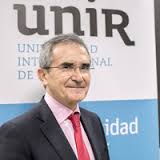 He is Professor of Media History at Universidad Complutense de Madrid until 2014 & currently professor at UNIR. Member of the Evaluating Committee of Social Sciences field on VERIFICA program of ANECA since 2008. Currently he focuses his research on the role of cinema & television on the representation of History. He has written several books with her colleague Maria Antonia Paz. He has published more than a dozen of papers in international frontline journals & more than twenty chapters on books about these issues. He has directed two qualification courses between 1996 & 2006: Specialist on Direction of Historical Documentaries & Specialist on Direction of Historical Scriptwriting, & until 2013, the Master on Audiovisual Heritage: History, Recovery & Management (UCM).
He is Professor of Media History at Universidad Complutense de Madrid until 2014 & currently professor at UNIR. Member of the Evaluating Committee of Social Sciences field on VERIFICA program of ANECA since 2008. Currently he focuses his research on the role of cinema & television on the representation of History. He has written several books with her colleague Maria Antonia Paz. He has published more than a dozen of papers in international frontline journals & more than twenty chapters on books about these issues. He has directed two qualification courses between 1996 & 2006: Specialist on Direction of Historical Documentaries & Specialist on Direction of Historical Scriptwriting, & until 2013, the Master on Audiovisual Heritage: History, Recovery & Management (UCM).
SERGE NOIRET
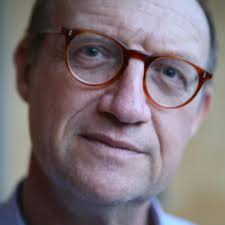 E’ History Information Specialist (Ph.D.) presso l’Istituto Universitario Europeo di Firenze. Attualmente presidente della International Federation for Public History (IFPH – ifph.hypotheses.org), si occupa di storia nelle biblioteche accademiche, di storia pubblica e di storia digitale. Mantiene un blog su questi temi (dph.hypotheses.org) che offre anche informazioni professionali e una lista di pubblicazioni. Nel 2015 è uscito il saggio Storia Pubblica Digitale, nella rivista “Zapruder. Storie in Movimento”, n. 36, Gennaio-Aprile 2015, e usciranno i seguenti interventi, Storia Digitale o Storia con il Digitale? in “Storia della Storiografia – History of Historiography”, n.1, gennaio-aprile 2015; con Thomas Cauvin: Internationalizing Public History in Oxford Handbook for Public History a cura di James B.Gardner and Paula Hamilton; Social Media in Wiley-Blackwell Encyclopedia of Public History a cura di David Dean; Digital Public History in “Linc em Revista”, Rio de Janeiro, n.1, vol. 11, Maggio 2015, numero speciale su Memory in the Digital Age: challenges to the humanities and information studies, a cura di Ricardo M. Pimenta e Maria José V. Jorente; Storia contemporanea digitale nel libro a cura di Rolando Minuti intitolato Storia Digitale, Roma, Carocci, 2015 e, infine Historia pública digital nel libro Historiografía, giro digital y globalización. Reflexiones teóricas y prácticas investigativas a cura di Juan Andrés Bresciano, Montevideo (Uruguay), Giugno 2015; infine sta coordinando insieme a Mark Tebeau la Encyclopaedia of Digital Public History per De Gruyter-Oldenbourg Verlag prevista per fine 2016.
E’ History Information Specialist (Ph.D.) presso l’Istituto Universitario Europeo di Firenze. Attualmente presidente della International Federation for Public History (IFPH – ifph.hypotheses.org), si occupa di storia nelle biblioteche accademiche, di storia pubblica e di storia digitale. Mantiene un blog su questi temi (dph.hypotheses.org) che offre anche informazioni professionali e una lista di pubblicazioni. Nel 2015 è uscito il saggio Storia Pubblica Digitale, nella rivista “Zapruder. Storie in Movimento”, n. 36, Gennaio-Aprile 2015, e usciranno i seguenti interventi, Storia Digitale o Storia con il Digitale? in “Storia della Storiografia – History of Historiography”, n.1, gennaio-aprile 2015; con Thomas Cauvin: Internationalizing Public History in Oxford Handbook for Public History a cura di James B.Gardner and Paula Hamilton; Social Media in Wiley-Blackwell Encyclopedia of Public History a cura di David Dean; Digital Public History in “Linc em Revista”, Rio de Janeiro, n.1, vol. 11, Maggio 2015, numero speciale su Memory in the Digital Age: challenges to the humanities and information studies, a cura di Ricardo M. Pimenta e Maria José V. Jorente; Storia contemporanea digitale nel libro a cura di Rolando Minuti intitolato Storia Digitale, Roma, Carocci, 2015 e, infine Historia pública digital nel libro Historiografía, giro digital y globalización. Reflexiones teóricas y prácticas investigativas a cura di Juan Andrés Bresciano, Montevideo (Uruguay), Giugno 2015; infine sta coordinando insieme a Mark Tebeau la Encyclopaedia of Digital Public History per De Gruyter-Oldenbourg Verlag prevista per fine 2016.
STEFFEN SAMMLER
Georg Eckert Institut, Universität Leipzig (Germania)
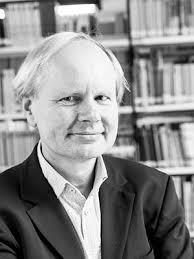 He studied history and French studies at the universities of Leipzig, Rouen and at the European University Institute in Florence. He obtained his PhD. in modern history in 1995 with a dissertation about 1789 and the transformation of political culture in France. He then worked as a DAAD lecturer in German studies at the University of Lyon 2, and is currently teaching European history at Leipzig university. Since 2010 he has been working at the Georg Eckert Institute for international textbook research for the ANR/DFG project Competition and Convergence. Images of Europe in German and French, Textbooks from 1900 to the Present Day <http://gei.de/?id=542>’ which examines the changes, variety, and ambivalence of images of Europe in French and German textbooks during the twentieth century. Since 2013, he has been researching the history of the Georg Eckert Institute <http://www.gei.de/en/the-institute/history.html>. As of 2016, he has been investigating the development of new teaching material for the social studies classroom in a time of changing media and an increasingly open society in the twentieth century within the project ‘New Knowledge in New Media?’ <http://www.gei.de/en/research/textbooks-and-society/neues-wissen-in-neuen-medien-gesellschaftswissenschaftlicher-unterricht-in-zeiten-medialen-wandels-und-sozialer-oeffnung-im-20-jahrhundert.html>,funded by the /PRO Niedersachsen/ initiative. He is a member of the research group ‘People and Conditions of Textbook Production’.
He studied history and French studies at the universities of Leipzig, Rouen and at the European University Institute in Florence. He obtained his PhD. in modern history in 1995 with a dissertation about 1789 and the transformation of political culture in France. He then worked as a DAAD lecturer in German studies at the University of Lyon 2, and is currently teaching European history at Leipzig university. Since 2010 he has been working at the Georg Eckert Institute for international textbook research for the ANR/DFG project Competition and Convergence. Images of Europe in German and French, Textbooks from 1900 to the Present Day <http://gei.de/?id=542>’ which examines the changes, variety, and ambivalence of images of Europe in French and German textbooks during the twentieth century. Since 2013, he has been researching the history of the Georg Eckert Institute <http://www.gei.de/en/the-institute/history.html>. As of 2016, he has been investigating the development of new teaching material for the social studies classroom in a time of changing media and an increasingly open society in the twentieth century within the project ‘New Knowledge in New Media?’ <http://www.gei.de/en/research/textbooks-and-society/neues-wissen-in-neuen-medien-gesellschaftswissenschaftlicher-unterricht-in-zeiten-medialen-wandels-und-sozialer-oeffnung-im-20-jahrhundert.html>,funded by the /PRO Niedersachsen/ initiative. He is a member of the research group ‘People and Conditions of Textbook Production’.
PIERRE SORLIN
Paris, University of Sorbonne Nouvelle, Paris – France
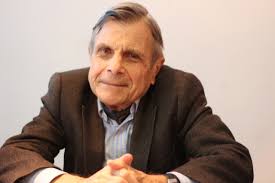 French film critic & historian, that introduced in EU the use of audiovisual document as evidence in the context of social history – a discipline that S. has taught at the universities of Lyon (1967-1969) & then of Paris VIII-Vincennes. In this context, the survey on the film has assumed a central position, as evidenced by his academic career: sociology professor of cinema at Paris VIII-Vincennes from the late seventies & aesthetics of cinema in Paris III-Sorbonne Nouvelle since 1989. Since 1987 he co-directs PARRI. In Sociologie du cinéma (1977; trans. Com. 1979) S. has developed the central notion of ‘visible’ – what in a certain period manufacturers image deem to be represented on the big screen – & applied in particular to Italian cinema after World War II (theme, this, to which he returned in 1996 with the text Italian national cinema, from 1896 to 1996). Along the same lines are placed both studies written in collaboration with Marie-Claire Ropars-Wuilleumier & Michèle Lagny, on the theme of revolution in the films of Sergei M. Eisenstein (La révolution figurée – Inscription de l’histoire et du politique dans un film, 1979) & the French popular cinema of the Thirties (Générique des années 30, 1986), & two studies of a more general nature, The film in history. Restaging the Past (1980; trans. Com., 1984) & EU cinemas, EU societies (1991; trans. Com. 2001), where he explored the notion of EU identity by comparing the development, since World War II to the sixties, of four great national cinematographies. In Esthétiques de l’audiovisual (1992; trans. com. 1997) & Les fils de Nadar. The ‘siècle’ de l’image analogique (1997; trans. Com. 2001) S. deepened further theoretical & aesthetic aspects of its investigation. While the first monograph, distancing himself from the semiotic approaches, explores the forms of participation involved in the aesthetic enjoyment of the film & television, S. has not failed to investigate the methodological aspects of historical work on visual sources, digital history & the web during its work with PARRI.
French film critic & historian, that introduced in EU the use of audiovisual document as evidence in the context of social history – a discipline that S. has taught at the universities of Lyon (1967-1969) & then of Paris VIII-Vincennes. In this context, the survey on the film has assumed a central position, as evidenced by his academic career: sociology professor of cinema at Paris VIII-Vincennes from the late seventies & aesthetics of cinema in Paris III-Sorbonne Nouvelle since 1989. Since 1987 he co-directs PARRI. In Sociologie du cinéma (1977; trans. Com. 1979) S. has developed the central notion of ‘visible’ – what in a certain period manufacturers image deem to be represented on the big screen – & applied in particular to Italian cinema after World War II (theme, this, to which he returned in 1996 with the text Italian national cinema, from 1896 to 1996). Along the same lines are placed both studies written in collaboration with Marie-Claire Ropars-Wuilleumier & Michèle Lagny, on the theme of revolution in the films of Sergei M. Eisenstein (La révolution figurée – Inscription de l’histoire et du politique dans un film, 1979) & the French popular cinema of the Thirties (Générique des années 30, 1986), & two studies of a more general nature, The film in history. Restaging the Past (1980; trans. Com., 1984) & EU cinemas, EU societies (1991; trans. Com. 2001), where he explored the notion of EU identity by comparing the development, since World War II to the sixties, of four great national cinematographies. In Esthétiques de l’audiovisual (1992; trans. com. 1997) & Les fils de Nadar. The ‘siècle’ de l’image analogique (1997; trans. Com. 2001) S. deepened further theoretical & aesthetic aspects of its investigation. While the first monograph, distancing himself from the semiotic approaches, explores the forms of participation involved in the aesthetic enjoyment of the film & television, S. has not failed to investigate the methodological aspects of historical work on visual sources, digital history & the web during its work with PARRI.
STEVEN STEGERS
Euroclio, European Association of History Educators, Netherlands
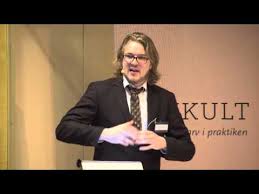 S.S. is the Programme Director of EUROCLIO. He is responsible for the management of three long-term programmes (Sharing History, Cultural Dialogues – Innovating History in the Black Sea Region; Mediterranean Dialogues in the Euro-Med region; & Historiana – Your Portal to the Past) & fundraising. He has contributed to the implementation of cross-border history education projects in Armenia, Azerbaijan, Bosnia-Herzegovina, Cyprus, Georgia, Germany, Estonia, Hungary, Latvia, Lebanon, Moldova, Montenegro, the Netherlands, Poland, Slovakia, Turkey, Ukraine, & the United Kingdom. He has been directly involved with large numbers of implementers of new educational material, providers of initial & in-service teacher training, & promoters of innovation in education in general. He has skills in intercultural communication & mediation in post-conflict, diverse, & divided societies. Steven has been consultant to the International Baccalaureate for the History Curriculum Review in 2012, to KAICIID Dialogue Center, & is an author of the Handbook for Intercultural Citizenship Education developed by Anna Lindh Foundation.
S.S. is the Programme Director of EUROCLIO. He is responsible for the management of three long-term programmes (Sharing History, Cultural Dialogues – Innovating History in the Black Sea Region; Mediterranean Dialogues in the Euro-Med region; & Historiana – Your Portal to the Past) & fundraising. He has contributed to the implementation of cross-border history education projects in Armenia, Azerbaijan, Bosnia-Herzegovina, Cyprus, Georgia, Germany, Estonia, Hungary, Latvia, Lebanon, Moldova, Montenegro, the Netherlands, Poland, Slovakia, Turkey, Ukraine, & the United Kingdom. He has been directly involved with large numbers of implementers of new educational material, providers of initial & in-service teacher training, & promoters of innovation in education in general. He has skills in intercultural communication & mediation in post-conflict, diverse, & divided societies. Steven has been consultant to the International Baccalaureate for the History Curriculum Review in 2012, to KAICIID Dialogue Center, & is an author of the Handbook for Intercultural Citizenship Education developed by Anna Lindh Foundation.
DARKO STRAJN
Pedagoski Institut – Slovenia
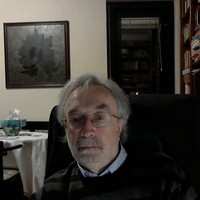 D. S. is professor of Cultural Anthropology at the Pedagogical Institute of Slovenia, Ljubljana. He is author of many books and articles related to Political Philosophy, Human Rights and Democracy, Applied Ethics, Aestetics, Film Studies and Modern Philosophy.
D. S. is professor of Cultural Anthropology at the Pedagogical Institute of Slovenia, Ljubljana. He is author of many books and articles related to Political Philosophy, Human Rights and Democracy, Applied Ethics, Aestetics, Film Studies and Modern Philosophy.
LASZLO STRAUZS
Kosztolanyi Dezso Kavehaz Kulturalis Alapitvany – Hungary
Assistant professor
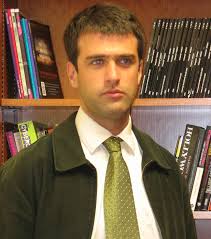 Since 1998 László Strausz has been working as a freelance writer on film for various journals and websites. After obtaining his MA in Philosophy at the University of Pécs, Hungary, he moved to the US to study at the doctoral school of the Georgia State University. Upon the completion of his dissertation on the development of stylistic norms in cinema, he worked for various universities both in the US and the UK. His research interests include cinema and historical memory, politics of style, Eastern European Cinemas, and the aesthetics and narrative theory of motion pictures.
Since 1998 László Strausz has been working as a freelance writer on film for various journals and websites. After obtaining his MA in Philosophy at the University of Pécs, Hungary, he moved to the US to study at the doctoral school of the Georgia State University. Upon the completion of his dissertation on the development of stylistic norms in cinema, he worked for various universities both in the US and the UK. His research interests include cinema and historical memory, politics of style, Eastern European Cinemas, and the aesthetics and narrative theory of motion pictures.
